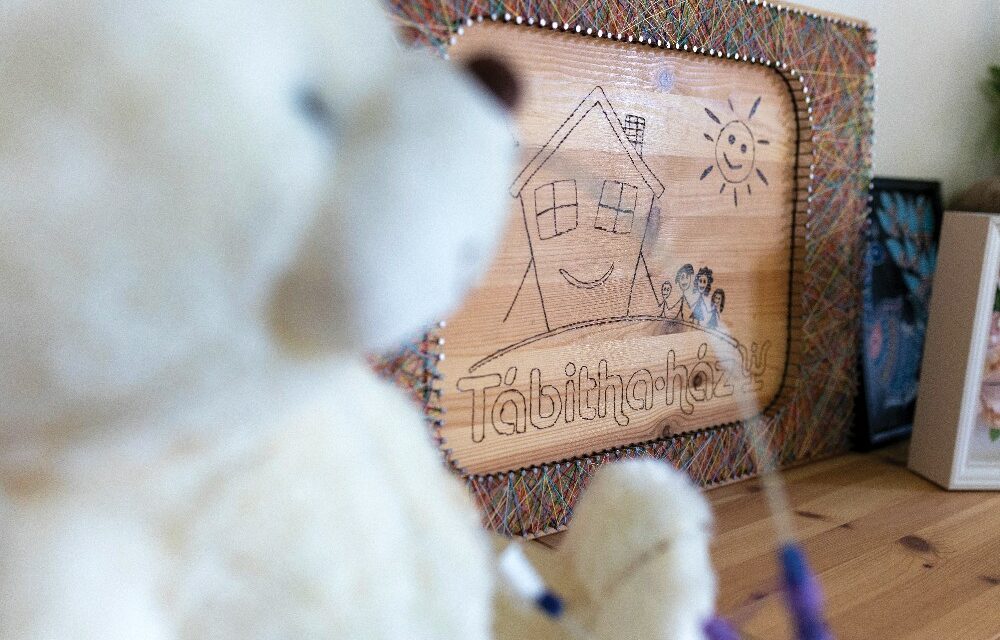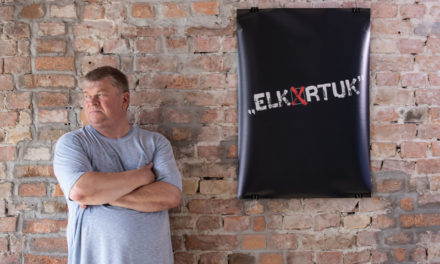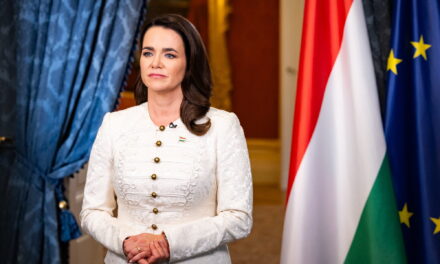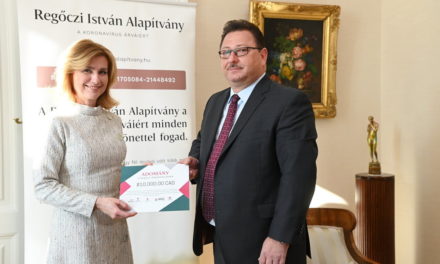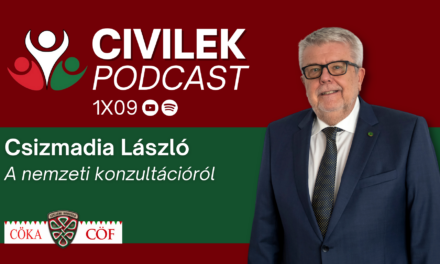"Contrary to popular belief, hospice is not primarily about death, but about life at the end of life, or, if you like, life before death." Medical Director Gábor Benyó has been running the Tábitha House in Törökbálint since September 2011, helping and supporting hundreds of children and their families - on the most difficult path.
The brainchild, founder and main supporter of Tábitha Ház is IT entrepreneur László Galambos, who, as the father of two healthy children, offered his own house and had it converted into a children's hospice house, so that even in the most desperate situations, he would be "the one who holds the hands of the children and their families". .
The first sick little girl arrived in September 2011. In the time since then, more than a hundred families have found help and shelter here - in the context of discharge, transit (training at home care) or end-of-life care - who are raising a child living with an incurable or chronic illness. Tábitha is currently the only children's hospice house in the country, with five beds and a spacious apartment with a separate entrance, where the family can be together in peace and quiet in the last weeks and days. All forms of care are free, thanks to sponsoring companies, private donors and the Baptist Charity Service, which supplement state funding.
Anita Farkas talked about the world of children's hospice with medical director Gábor Benyó.
Full of warmth, light, love and serenity: in the only children's hospice house in the country, everything is not about death, but about life, and how it is worth living and dying. Gábor Benyó has been running the Tábitha House in Törökbálint since its foundation in September 2011. During this time, more than three hundred families raising children living with an incurable or chronic illness have found help and shelter here.
***
When we arrived, they were talking to a mother in a very good mood, while a spaniel was running up and down. Despite the scary word hospice, Tábitha Ház is full of life.
Moreover, as incredible as it is, all of us here, including our nurses, psychologist and volunteers, are quite human people. They have better and worse days, sometimes we get tired, sometimes we get tired, but basically we try to do our work cheerfully and cheerfully. Contrary to popular belief, hospice is not primarily about death, but about life at the end of life, or, if you like, life before death. Our main task is therefore to beautify and facilitate the everyday lives of children suffering from life-threatening or life-shortening illnesses. And yes,
it often happens that we accompany our "returning" child, even for years, until he takes his last breath.
But if we were to die ourselves in every such case, we would not be able to turn to those arriving with the same open heart and love.
How can you even beautify such a road that looks impossibly difficult from the outside?
For example, if we release the parent from the burden of the child's continuous care for a few days or weeks in the so-called relief care; this also happens with the mother they met. Or we help hospitals for a longer or shorter time in a similar way. Many children are stuck in various medical institutions because, for example, they need mechanical ventilation or special nutrition or medication, which their relatives cannot solve at home due to mental or financial difficulties. It's not that parents don't want to do their best: we've been conditioned, ever since the animal world, to protect our offspring at all costs. That without thinking we jump in front of the beast instead of them. But unfortunately, there is such a beast as cancer or a serious metabolic disease, which we cannot throw ourselves in front of instead of the child. Children's hospice and palliative care aimed at alleviating and eliminating physical and mental suffering are not only at the center of sick children.
But the whole family?
Yes. The child has his own heavy burdens, but so do those around him. For example, brothers and sisters, for whom there may not be enough time, energy, or attention. Or there is the question of physical conditions: can a dying child be taken home when three or four people share a room? Parents therefore sometimes have to make very difficult and painful decisions. It's good if they have support and help in this,
someone who doesn't judge, because you should never.
How easy is it to ask for and accept help?
Not at all, especially for mothers. A mother usually thinks that a sick child is her cross, which she must carry at any cost. For example, he feeds even if it lasts for an hour and rejects gastric tube feeding from his gut. And if a meal is an hour, four times a day is already four hours. If only two of them were freed up, the mother could spend that time on her siblings, sir, herself, her husband, her work, her hobbies, whatever. Everyone needs recharge, regeneration,
otherwise sooner or later the power thought to be infinite will run out.
We can help a lot in this, either by going to the house, giving advice, training, or by taking care of the child as carefully as possible here at Tábitha. We had a couple with divorced parents where the mother stated that if they had found us first, their marriage might not have ended. Because it has to be seen that most people go through all this as a lone wolf, the longer the disease persists, the more isolated they are from the outside world. Nowadays, people find it increasingly difficult to accept unpleasant things anyway.
Death, for example?
Also.
It is commonplace, but with the fact that large families have broken up, most of the elderly die in hospitals or other institutions, not to mention that we do not encounter death up close, we do not learn to live with a chronic patient either.And if something is said to be incurable, the unjustified expectation of a miracle often starts. That if not here, then in Germany or England, but in the United States they must have already figured something out. This is somewhat understandable, but it creates a false illusion of immortality: unfortunately, despite the better opportunities, despite the large-scale development of medicine, even today it is not possible to fix everything that has gone wrong. And this, no matter how difficult, at some point you have to accept it. Also for us doctors and health workers. To do this, we have to let go of our own professional vanity, the idea that the success of a healer's work can only be measured in complete recovery, and if a patient receives palliative or hospice care, it is a professional failure. I think that our work at Tábitha can indeed be called successful. With the exemption, we help many families, and during direct end-of-life care,
if there is no way to do so at home, we offer the opportunity for a painless, loving, dignified farewell.

